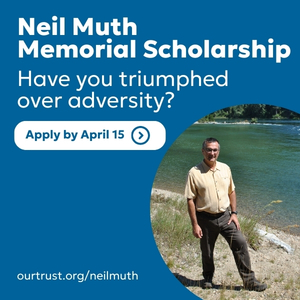This time, it’s for real. This time, there is no going back. Playing again in the NHL is not in the cards. He believes that.

Ah, but life. That’s what stretches out in front of Scott Niedermayer like a fresh sheet of ice, what excites him to the core.
For the first time in 18 seasons, as the NHL gets set for play, the most successful player in the history of hockey, the captain of Canada’s victorious 2010 Olympic team, is looking beyond the night-after-night demands of his sport.
There is his family. He and his wife continue to reside in Southern California, in Newport Beach, raising their four boys, three of whom are in school and playing minor hockey.
There is the property in British Columbia, not just the summer home on Kootenay Lake, but the acreage on the outskirts of Fernie with untapped potential. Could be a new spread for the family. Could be a farm. Just imagine: The most successful player in the history of hockey, a man who has won everything there is to win, riding horses or planting crops.
Then there are the possibilities that have crossed his mind, some wild (such as winemaking, Chateau Niedermayer 2010), and some crazy (such as politics, speaking out on the issues he values, the environment, health and wellness).
And yes, there is also a hockey option for Niedermayer, not as a player but as a member of the Anaheim Ducks’ management team. He may hang out with general manager Bob Murray the way Steve Yzerman became Ken Holland’s shadow with the Detroit Red Wings, the way Chris Chelios is now following suits in Detroit. He may work with the Ducks’ players, the younger prospects, be a mentor, a coach without portfolio.
Whatever he decides, Niedermayer is certain he won’t be rushed into it. Time is his ally, not his enemy. This time, he says, there will be no last-minute decision to change his mind, to unretire and return to the Ducks for one last run. What’s next, then? That’s the question.
“Where I’m at is I’m open to ideas,” Niedermayer explained recently while chatting inside the Fernie Aquatic Centre, not far from where his acreage sits guarded by the Rockies. He looked fit, scruffy-faced and content, a man at peace with his thoughts.
“Over the last few months, I’ve talked to a lot of different people about different things, things I wouldn’t have thought of. … I just don’t want to get too busy with one thing right away.”
Niedermayer was never the most typical hockey player. He was an artist, a defenceman who skated with speed and understated confidence. He won the Memorial Cup, the world juniors, world championship, the World Cup of Hockey, four Stanley Cups and two Olympic gold medals. He played best in the biggest games and he spoke and acted the way he performed, intelligently, as someone who could see beyond the ice.
Born in Alberta and raised in British Columbia, Niedermayer said he was nurtured to appreciate the richness of geography and the need to keep it pure. He drives a zero-emission Honda FCX Clarity, a hydrogen fuel-cell electric car. He has spoken out against the Jumbo Glacier Resort planned for B.C.’s pristine Purcell Mountains.
“I put my name on that to draw attention to it,” he said of his protest. “There are people who’d like to keep the mountains as they are. I enjoy working my way to get to the top of the mountain, to experience the views and nature. I understand business has to go on, but I think this is a special place for so many reasons.”
For taking that stand, Niedermayer was approached by a Canadian political party (he won’t say which, but it’s likely the Green Party) and asked to become a representative. He didn’t accept the invitation, but he won’t rule it out completely.
“I’ve had talks with foundations and charities,” he said. “Maybe there’s a fit there as well. When you have kids, you look at what you’re leaving.”
Niedermayer hasn’t spent much time reflecting on what he’s leaving behind as a player, largely because he’s been too busy tagging along to his sons’ hockey games and working with the Ducks. When he first tried retirement, in 2007, he was good for the first two months until feeling restless in the fall. He could relate to his Anaheim teammates getting on planes for road trips. He followed the Ducks’ wins and losses. By December, he announced his return.
The game’s pull will come again, but at 37, Niedermayer insists he is keen to explore other things. Even his undefined off-ice hockey role has fascinated him and that has delighted Ducks general manager Bob Murray.
“It shouldn’t surprise anybody that he’s interested in the other side of the game,” said Murray, who described Niedermayer’s position as being “a little like Steve Yzerman’s. I can see him being thorough in what he likes and doesn’t like. He’s such an intelligent guy and he’s a winner, plain and simple. Tell me someone who’s won more.”
Niedermayer took in the 2010 NHL entry draft and sat at the Ducks’ table. He was at the team’s rookie camp held in Penticton, B.C. He may drop in on the Ducks’ American Hockey League affiliate in Syracuse, N.Y., this season. There is no rush. He has time on his hands and potential on so many fronts – business, politics, social issues, family matters, even working with his sons’ minor-hockey teams.
For the most successful player in the history of the game, the uncertainty of it all is what makes it so intriguing.
“I’m not sure exactly what I’ll be doing next. But this,” he said of retirement, “is a chance to see what I like.”
By Allan Maki, amaki@globeandmail.com
Globe and Mail
























